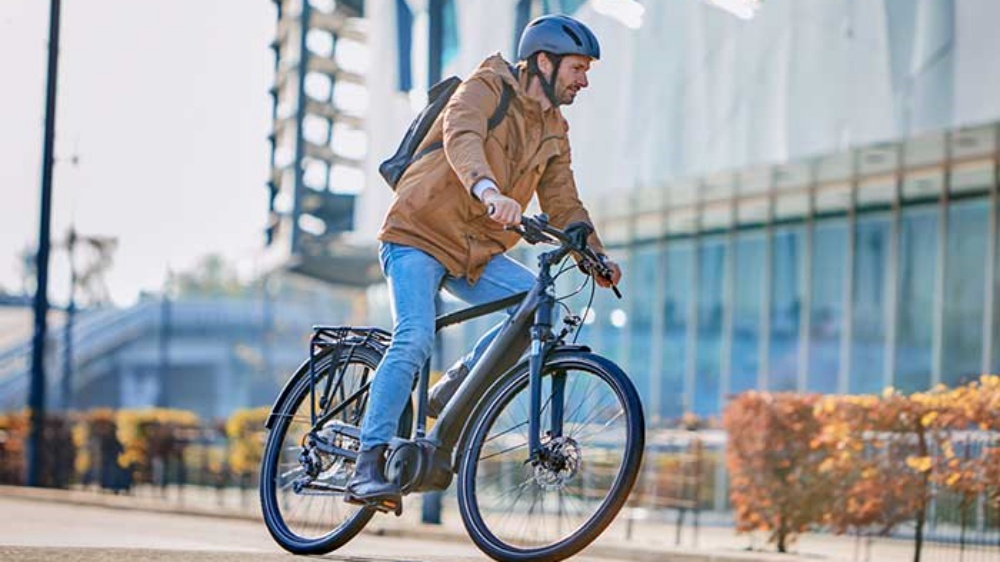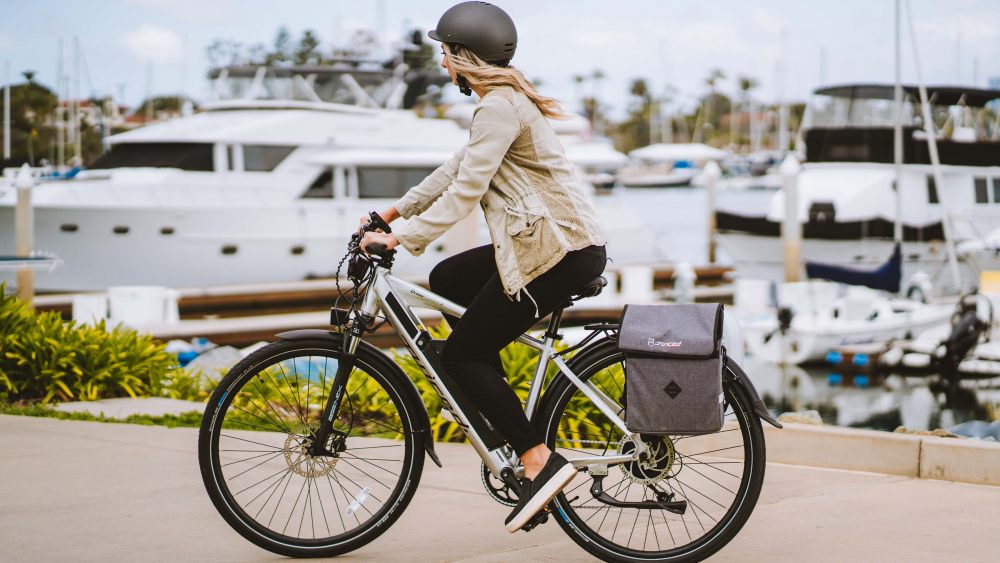250W vs. 750W EBikes: Which is Better for You?
E-bikes are sweeping the transportation and recreation landscape, and their popularity has skyrocketed dramatically in recent years. These innovative e-bikes offer a unique blend of convenience, sustainability and an exciting riding experience.
A key aspect that shapes the functionality of an e-bike is its power rating, often measured in watts, which serves as a compass to guide its performance across a variety of terrains and conditions. In this blog, we’ll delve into an interesting comparison between two different (and most common) power options on e-bikes: 250W vs. 750W ebikes.
We’ll try to shed light on the complex relationship between power output, speed, versatility, and regulatory considerations, revealing the dynamic choices riders face in their quest for the perfect e-bike match. So, let’s get started.
Understanding E-Bike Power Ratings
The concept of power rating, measured in watts (W), is at the heart of e-bike performance. Let’s dive into the world of eBike power ratings to understand their importance and impact on motor power and overall performance.
 Explore e-bike power ratings (watts) and motor power
Explore e-bike power ratings (watts) and motor power
At the heart of an eBike’s functionality is its power rating (in watts). This rating reflects the rate at which the motor delivers energy and directly affects the force that propels the bike forward. Essentially, it is a measure of the strength of the motor and its ability to assist the rider in pedaling effort. The higher the wattage, the stronger the motor’s ability to assist.
Correlation between power rating and motor power
There is a close correlation between wattage rating and motor power. Higher wattage usually corresponds to a more robust motor capable of producing more torque. This equates to better acceleration and the ability to conquer challenging terrain with ease. Conversely, lower wattage motors may provide a softer riding experience, ideal for less demanding rides or riders looking for minimal assistance.
Impact of power output on performance
The power output of an e-bike plays a key role in shaping all aspects of its performance characteristics.
Speed and Acceleration
Power output directly affects the speed and acceleration of an e-bike. Higher wattage motors provide greater assistance, resulting in faster acceleration and the ability to reach higher speeds effortlessly. This is especially beneficial for urban commuting, as fast acceleration helps navigate traffic and intersections.
Climbing ability
The power rating of an e-bike significantly affects the bike’s climbing ability. A well-powered motor can help riders conquer steep slopes and make hilly terrain easier to navigate. Riders can tackle challenging routes without overexerting themselves, which enhances the overall riding experience and extends the e-bike’s range.
Versatility and Terrain Adaptability
Power rating determines the versatility of an e-bike on different terrains. A higher wattage eBike excels when venturing onto off-road trails or exploring rugged landscapes. It can effortlessly traverse uneven surfaces, gravel roads, and slopes, offering riders the freedom to explore a variety of environments.
Pros and Cons of 250W E-bikes
Now let’s discuss whether a 250W e-bike is right for you!
Pros of 250W e-bikes
Legal classification and wider acceptance
250W e-bikes offer significant advantages in terms of legal classification. In many areas, these e-bikes are considered regular bicycles rather than motorized vehicles. This favorable classification promotes wider acceptance by cyclists and pedestrians and the harmonious coexistence of roads and sidewalks.
Efficiency and extended range
A significant advantage of the 250W e-bike is its energy-saving properties. Lower power consumption means that the e-bike’s battery can be used more efficiently, resulting in longer battery life. Riders can enjoy long journeys without worrying about running out of power, making it an ideal companion for leisure rides and long commutes.
Regulatory Advantages for Urban Exploration
250W e-bikes comply with certain e-bike regulations that allow them to use bike lanes and designated paths. This regulatory preference enhances their adaptability to urban environments, allowing riders to easily navigate through crowded city streets while enjoying dedicated bicycle infrastructure.
Fitness and Exercise
250W e-bikes encourage physical activity by requiring riders to pedal. This aspect promotes exercise and maintains the health benefits of cycling while providing the convenience of motor-assisted propulsion. This is an excellent choice for those who want to stay active while enjoying the help of an electric motor.
Smooth and comfortable ride
With its balanced power output, the 250W e-bike offers a smooth and comfortable ride. It provides gentle assistance that doesn’t overwhelm the rider’s pedaling power, making it suitable for recreational riding and daily commuting.
Disadvantages of 250W E-bike
 Limited power for demanding terrain
Limited power for demanding terrain
While the 250W eBike performs well in urban environments and flat terrain, its limitations become apparent when faced with demanding terrain. Steep hills and challenging slopes can pose a challenge, as the relatively low power output can make it difficult to maintain speed and momentum. This limitation may affect the overall riding experience in areas with frequent elevation changes.
Acceleration slowdown in urban environments
In busy urban environments where rapid acceleration is critical for maneuvering through traffic and intersections, the 250W eBike may accelerate at a slower rate compared to its higher power counterparts. This can affect the rider’s ability to maneuver quickly and keep up with the flow of urban traffic.
Pros and Cons of 750W E-Bikes
Now let’s explore the dynamic world of 750W e-bikes to reveal their pros and potential cons.
Pros of 750W eBikes
Enhanced Performance: Unleash the Power
The 750W e-bike explodes with energy, delivering superior acceleration and allowing riders to reach higher speeds instantly. Its powerful engine conquers flats and slopes with ease, making every ride a thrilling adventure.
Handles challenging situations
Master slopes and heavy loads: When faced with intimidating hills, the 750W eBike can handle them with ease. Its powerful engine delivers power on slopes that might bog down other e-bikes, ensuring a seamless and enjoyable uphill ride.
Carry heavier loads with ease
Whether you’re carrying groceries or hauling gear, the 750W e-bike can easily carry extra weight. Its higher power output provides the necessary strength to maintain speed and stability even when fully loaded.
Versatility: Tackling different terrains
The 750W eBike thrives in a variety of terrains, from city streets to rugged trails. Its power allows riders to confidently explore off-road trails, gravel trails, and uneven surfaces, opening up a world of diverse riding experiences.
Disadvantages of the 750W E-Bike
Regulatory considerations: dealing with legal complexity
With more power comes the potential for different legal classifications. In some areas, a 750W eBike may be considered a motor vehicle, subject to different regulations, potential licensing requirements, and restrictions on where you can ride.
Battery consumption: balancing power and range
The powerful performance of a 750W e-bike may come at the cost of battery life. Higher power outputs may result in faster energy consumption and may require more frequent recharging, especially on longer rides.
Key Factors in Choosing Bw 250W and 750W E-Bikes
Let’s take a closer look at the key factors that will guide you in choosing between 250W and 750W eBikes.
Rider Preferences and Needs
The first step in your decision-making process is to determine your primary purpose for purchasing an e-bike. Are you looking for a smooth, easy commute on bustling city streets? Do you want to take a leisurely ride along scenic trails and paths?
Or perhaps you have an inner desire for off-road adventure and need the power to conquer challenging terrain? Your intended use is crucial in determining whether a 250W or 750W eBike is the ideal companion for you.
Legal and Regulatory Environment
In addition to your personal preferences, the legal and regulatory environment in your area can significantly affect your e-bike choice. Regulations vary widely, and e-bikes are categorized based on power output and speed capability. It is critical to research and understand local laws regarding e-bike classification, licensing requirements, and permitted uses.
Choosing a 250W e-bike may offer regulatory advantages in certain areas, such as unrestricted access to bike lanes and roadways. Conversely, a 750W eBike may be subject to different regulations that may affect where and how you ride.
Terrain and riding conditions
The terrain of a typical riding route is a critical consideration. If you are a city dweller with predominantly flat terrain, then a 250W eBike may seamlessly complement your urban journey.
On the other hand, if your route includes hilly landscapes or off-road trails, the extra power of a 750W eBike may be your ticket to easily conquering those challenging slopes and rough roads. Elevation changes, steep grades, and the types of surfaces you’ll encounter play an important role in determining the required power output.
Balancing the Scales
Choosing between a 250W and 750W e-bike is a balancing act that requires a blend of your riding preferences, legal restrictions and environmental requirements. It’s about visualizing the journey you’ll be embarking on, understanding the rules of the road, and acknowledging the terrain you’ll be traversing.
Power output is not the only determining factor; it’s a harmonious symphony of factors that shape your e-bike experience.
Add it up.
Choosing the perfect e-bike is like choosing a tailored suit – it needs to fit your style, meet your needs and complement your environment.
When standing at the crossroads of e-bike selection, the decision between the 250W and 750W models deserves a lot of thought. It’s not just about power; it’s about aligning your e-bike with your lifestyle, your legal environment, and the terrain you’ll be traversing. By carefully considering the factors we’ve discussed above, we hope you’ll be able to make the right decision!
Have any questions? Contact us! Let our well-designed 750W Electric Bike and quality outdoor accessories take you on a journey to explore nature and unleash your passion for unlimited adventure!

